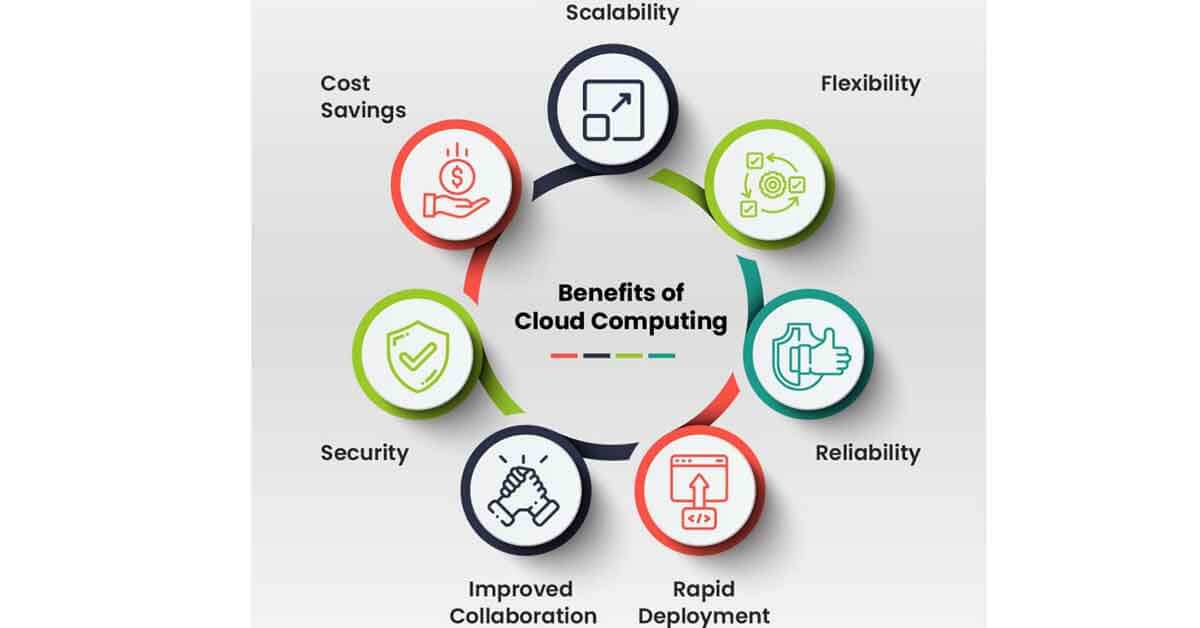The Top 5 Best Cloud Computing Companies: Comparing AWS, Azure, IBM, VMware, and Alibaba Cloud
When choosing a cloud provider, companies need top-tier performance, versatility, and scalability. Today, five cloud giants stand out as the best cloud computing companies: Amazon Web Services (AWS), Microsoft Azure, IBM Cloud, VMware Cloud, and Alibaba Cloud. Each provider offers a distinct set of strengths, limitations, and specialized features. In this article, we will rank them based on their overall performance, including features, pros, cons, and real customer testimonials.
1. Amazon Web Services (AWS)
Amazon Web Services (AWS) consistently ranks as a powerhouse among the best cloud computing companies. Its services are versatile, spanning 200+ countries, with tools for startups, enterprises, and everything in between. Here’s why AWS remains a global favorite:
- Key Features of AWS- Extensive Global Reach: AWS provides data centers worldwide, which means companies benefit from low latency.
– Comprehensive Offerings: From computing power to storage options, AWS offers over 200 cloud services.
– Flexible Pricing Models: AWS caters to budgets of all sizes with pay-as-you-go and reserved instances.
Pros of AWS
– Unmatched scalability for businesses of any size.
– Industry-leading security and compliance certifications.
– Constantly evolving with new, innovative services.
Cons of AWS
– Complex billing can confuse users.
– Some services are region-specific, creating limitations.
Customer Testimonial:
“Our business needed a highly scalable solution, and AWS delivered. We’ve scaled our servers seamlessly as our user base grew, without any latency issues.” — Tech Solutions Group
2. Microsoft Azure
Microsoft Azure is another top choice among the best cloud computing companies. Known for integrating seamlessly with Microsoft products, Azure is ideal for businesses already invested in the Microsoft ecosystem.
-
Key Features of Microsoft Azure
– Hybrid Cloud Capability: Azure’s hybrid solutions allow companies to blend on-premises and cloud setups.
– AI and Machine Learning: Azure’s AI tools, such as Azure Machine Learning, enable businesses to build intelligent applications.
– Seamless Microsoft Integration: Azure works well with Microsoft Office, Dynamics 365, and Windows.
Pros of Microsoft Azure
– Strong support for hybrid cloud and edge computing.
– Exceptional data security, making it popular among government organizations.
– Easy integration with Microsoft tools, reducing setup complexity.
Cons of Microsoft Azure
– Learning curve for non-Microsoft users.
– Occasional downtime in some regions.
Customer Testimonial:
“Microsoft Azure allowed us to expand our network with minimal downtime. Integrating our data was easy, and customer support was fantastic.” — Financial Solutions Co.

Multi-Cloud Strategy for Cloud Architects
Adopt and manage public clouds !!!
👉 Add To Cart & Buy on Amazon
3. IBM Cloud
IBM Cloud appeals to enterprises looking for an advanced, AI-driven cloud platform. Known for its powerful computing capabilities, IBM Cloud offers advanced data and AI tools, making it perfect for industries with high computing demands.
-
Key Features of IBM Cloud
– Powerful AI Integration: IBM Watson provides advanced machine learning capabilities for data-driven companies.
– Blockchain and Quantum Computing: IBM Cloud is a pioneer in blockchain and quantum computing, adding a unique advantage.
– Security and Compliance: IBM Cloud ensures data privacy with robust security controls and compliance with industry standards.
Pros of IBM Cloud
– AI and machine learning tools are well-suited for complex projects.
– Enterprise-grade security with a wide array of compliance certifications.
– Ideal for industries like finance, healthcare, and retail.
Cons of IBM Cloud
– Higher cost than competitors, particularly for advanced AI functions.
– Limited number of data centers compared to AWS and Azure.
-
4. VMware Cloud
VMware Cloud is known for helping businesses transition from traditional infrastructure to a more flexible, virtualized cloud environment. If you seek a hybrid setup with a focus on virtualization, VMware is a top contender.
-
Key Features of VMware Cloud
– Strong Virtualization: VMware’s technology enables organizations to create scalable, virtualized environments.
– Integrated Multi-Cloud Solution: VMware works well with AWS, Azure, and Google Cloud, making it versatile.
– Comprehensive Disaster Recovery: VMware Cloud offers robust disaster recovery options.
Pros of VMware Cloud
– Seamlessly connects on-premises and cloud infrastructure.
– Simplifies complex, multi-cloud management.
– Ideal for enterprises requiring a hybrid infrastructure.
Cons of VMware Cloud
– Limited direct offerings outside the virtualization field.
– High pricing can deter small businesses.
-
5. Alibaba Cloud
For businesses targeting the Asian market, Alibaba Cloud is a prominent choice. As China’s leading cloud provider, Alibaba Cloud delivers unique strengths for companies looking to expand into Asia.
Key Features of Alibaba Cloud
– Global Data Network: Alibaba Cloud has a vast network in Asia, providing low latency and reliable connectivity in the region.
– Advanced Security: Alibaba Cloud meets various international standards for data security.
– Wide Array of Services: Alibaba offers a rich set of tools, including data storage, analytics, and AI.
Pros of Alibaba Cloud
– Excellent for businesses targeting Asian markets.
– Strong focus on security, with multiple compliance certifications.
– Competitive pricing for storage and computing services.
Cons of Alibaba Cloud
– Limited support and data centers outside Asia.
– Complex interface that can be challenging for Western users.
Ranking Summary of the Best Cloud Computing Companies
After assessing each provider’s strengths and weaknesses, here’s our final ranking of the best cloud computing companies:
1. Amazon Web Services (AWS) – AWS ranks first due to its scalability, extensive tools, and global data center network. Its reliability and flexibility remain unmatched.
2. Microsoft Azure – Azure ranks second, especially for businesses using Microsoft tools and hybrid cloud infrastructure.
3. IBM Cloud – Ranking third, IBM Cloud is perfect for high-compute projects requiring AI, blockchain, and strong security.
4. VMware Cloud – VMware is an excellent option for virtualization and hybrid models, but it focuses mainly on larger enterprises.
5. Alibaba Cloud – Alibaba Cloud ranks fifth, excelling in Asia but offering limited support elsewhere.
Choosing the Right Cloud Provider
In conclusion, the best cloud computing company for your business depends on your specific needs. AWS leads the field with its wide range of services and global reach. However, companies loyal to the Microsoft ecosystem may prefer Azure. On the other hand, enterprises focused on high-tech solutions may find IBM Cloud ideal. For those who prioritize a strong hybrid model, VMware is a solid option. Lastly, Alibaba Cloud dominates in Asia, making it suitable for businesses targeting that region.
Whether you need scalability, advanced AI tools, or hybrid solutions, these five cloud providers offer diverse solutions. By understanding their unique features, pros, and cons, you can make an informed decision to support your business growth.
Multi-Cloud Strategy for Cloud Architects
Adopt and manage public clouds !!!
👉 Add To Cart & Buy on Amazon








